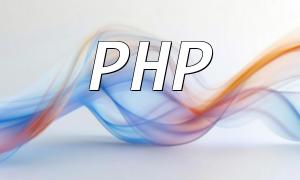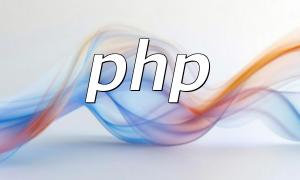When developing PHP programs, following proper coding standards is crucial for ensuring code quality and maintainability. Code that adheres to standards is easier to read and maintain, providing a solid foundation for team collaboration and continuous integration. This article introduces some commonly used PHP coding standards and their importance, along with code examples to help readers better understand them.
Correct indentation is critical for improving code readability. It is recommended to use 4 spaces or a single tab for indentation, and to avoid mixing spaces and tabs.
Example code:
function process_data($data) {<br> if ($data) {<br> foreach ($data as $item) {<br> echo $item . "<br>";<br> }<br> }<br>}Good comments are essential for maintaining code. They help other developers quickly understand the intent and functionality of the code. In PHP, you can use single-line comments (//) and multi-line comments (/* ... */) to describe the code.
Example code:
/**<br> * Data processing function<br> * @param array $data Data to be processed<br> * @return void<br> */<br>function process_data($data) {<br> if ($data) {<br> foreach ($data as $item) {<br> echo $item . "<br>";<br> }<br> }<br>}Function and variable names should be descriptive, clearly conveying their purpose. Following camelCase naming conventions is a good practice, and abbreviations or unclear names should be avoided.
Example code:
function processData($data) {<br> if ($data) {<br> foreach ($data as $item) {<br> echo $item . "<br>";<br> }<br> }<br>}In PHP code, operators (such as assignment and comparison operators) should be separated by spaces. Proper spacing improves code readability and helps developers quickly understand the logic.
Example code:
$x = 5;<br>$y = 10;<br><br>if ($x == $y) {<br> echo "x and y are equal";<br>}Constants should be named in all uppercase letters with underscores separating words. This naming convention helps distinguish constants from variables.
Example code:
define("MAX_ATTEMPTS", 3);By following these coding standards, we can not only improve the quality and maintainability of PHP code but also lay a solid foundation for team collaboration and code reviews. In practice, you can also use code checkers to automatically detect and fix formatting issues, ensuring code consistency and conformity.
Good PHP coding standards are essential for improving code quality and maintainability. They not only facilitate team collaboration and code review but also improve development efficiency and code stability. We should always adhere to these standards and continuously learn and adapt to new coding conventions as the industry evolves.







